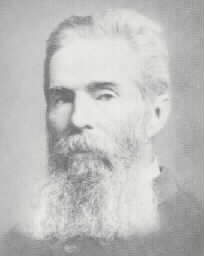Melville and 'Moby Dick'

Born on this day in 1819 in New York City, the son of fallen Manhattan blue-bloods, Herman Melville's childhood was colored by financial instability and disease; a bout with scarlet fever left him plagued for life by poor eyesight. At age 20, he went to sea as a cabin boy; taught briefly upon his return; then sailed on a whaler, the Acushnet, to the South Seas.
Anchored in the Marquesas Islands, he became the well-treated captive of the local cannibal tribe, the Typees. After his rescue, Melville joined a mutiny and landed in a Tahitian jail, but he easily escaped, sailing home with the Navy in 1844. Although he never considered writing as a career, his friends urged him to write about his travels. Embellishing his idyll with the cannibals, he wrote Typee (1846), which became a popular as well as a critical success, even as some quarters found it outrageous and even immoral (some juicy sex scenes were excised by his publisher). Melville followed Typee with Omoo (1847), an account of his time in Polynesia after his escape from jail.
Benefiting from brisk sales, he married and settled down in Berkshires near Nathaniel Hawthorne. Fresh from approving notices and his new intellectual friends, he published Mardi and a Voyage Thither (1849), which was a miserable failure -- self-consciously symbolic and stylistically uneven. He returned to form with the autobiographical Redburn (1849), a comic novel about his first ocean voyage, and White-Jacket (1850), about his brief stint in the Navy. By this time he had grown distant from sober Hawthorne, who did not appreciate Melville's flowery, open affection, yet Hawthorne's predilection for allegory had left its mark on Melville's work.
In 1851, he published what in time would be considered his masterpiece, Moby Dick, or The Whale, first in England and then in the U.S., to barely a contemporary ripple. Rediscovered in 1917 by Carl Van Doren, among others, and now considered one of the great, essential American novels, its central literal and metaphysical quest has been echoed and replayed and subverted in countless American novels since. Despite lapses in narrative point of view and narrative gaps, Moby Dick succeeds both as adventure narrative and on a different level as a genre-defying, abundantly striped philosophical allegory -- at times rhapsodic, at times funny, and at times surging and dense, with minute descriptions of nautical mechanics and whaling technology as evocative of the pathology of Melville's central characters as the mere narrative itself.
Despite all this, a 1950 survey by the Columbia University Press found Moby Dick to be the second most boring literary classic of all-time, an attitude which fueled one of the recurring jokes of Woody Allen's Zelig. The first most boring: John Bunyan's Pilgrim's Progress.
Exhausted for having tackled a work of such scope and depressed about its lack of a warm reception, Melville became somewhat of a recluse. He struggled through the 1850s and early 1860s -- publishing stories, including "Bartleby the Scrivener" (1853, the story of a clerk in the dead letter office) and "Benito Cereno" (1855, an account of a slave mutiny), and some verse -- until he received an appointment as a customs inspector at the New York docks in 1866. He spent his last 25 years working in obscurity, believing that his literary reputation would consist of going down in posterity as "the man who lived among the cannibals," if at all. He died in New York City on September 28, 1891. Thirty-three years after his death, in 1924, Melville's final novel, Billy Budd, based on the Somers' mutiny and court-martial, was published to great acclaim.
In spite of the 1950 Columbia survey, Melville's posthumous hold on pop culture has been tenacious. In addition to many film versions of Moby Dick (including 2 with John Barrymore, 1926 and 1930; a French version directed by Michael Curtiz and starring William Dieterle(!); the 1956 version by John Huston, with Gregory Peck; and the 1998 TV version with Patrick Stewart), Orson Welles staged a play, Moby Dick Rehearsed, about a group of Shakesperean actors who spontaneously begin to act out Melville's work. Other interesting spin-offs have included Benjamin Britten's opera, Billy Budd, and film versions of Billy Budd (1962, with Robert Ryan) and Typee (Enchanted Island, 1958, by Allan Dwan with Dana Andrews).
And, yes, Melville is a great uncle of the pencil-necked electronic musician Moby (Everything is Wrong; Play).
Labels: Literature





1 Comments:
Well done. I want to savour this blog about Melville. Tim Severin's book "Searching for Moby Dick" deals with some interesting aspects of Melville and Moby and South Pacific Islanders. Ever since I read it I wanted to know more. I'll be back
Post a Comment
Subscribe to Post Comments [Atom]
<< Home